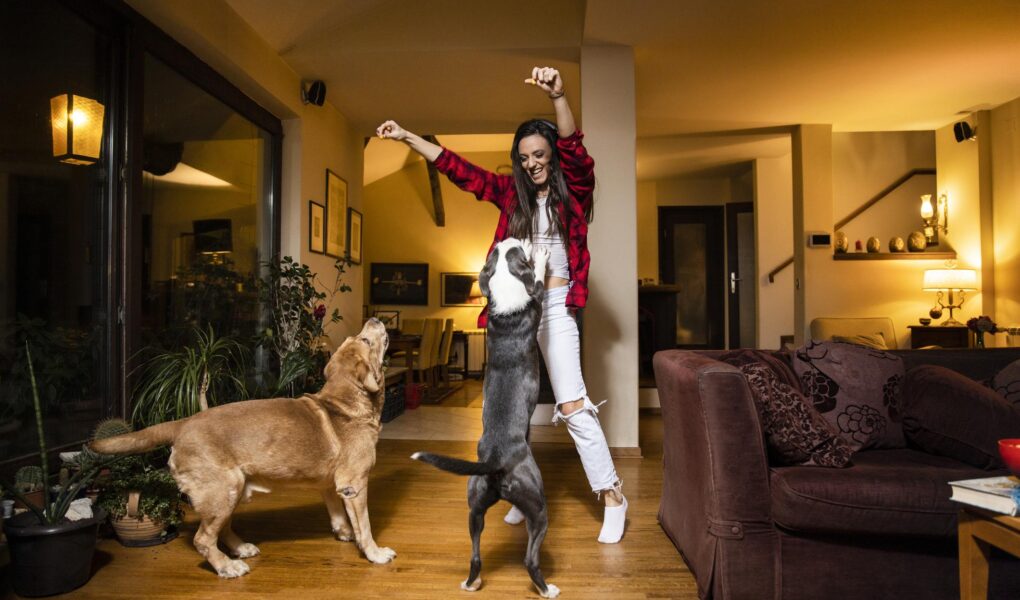Title: Discovering the Best Dog Trainers: A Guide to Canine Companionship
Introduction:
In a world where the bond between humans and their canine companions is celebrated, the role of a skilled dog trainer becomes increasingly vital. Whether you’re welcoming a spirited puppy into your home, seeking to refine the skills of an enthusiastic adult dog, or addressing behavioral challenges that disrupt everyday life, finding the right trainer can make all the difference. With a myriad of training techniques and philosophies available, navigating this landscape can feel overwhelming. In this article, we will explore the characteristics that define the best dog trainers, highlighting their diverse methods, qualifications, and the unique ways they foster communication and understanding between owner and pet. Join us as we embark on a journey to uncover the expertise that transforms the ordinary into the extraordinary, ensuring that every wagging tail is met with understanding and affection.
Table of Contents
- Understanding Canine Behavior: The Foundation of Effective Training
- Innovative Training Techniques: Choosing the Right Approach for Your Dog
- Top-Rated Trainers: Profiles of Experts Making a Difference
- The Importance of Continuous Learning: Keeping Your Skills Sharp as a Dog Trainer
- Q&A
- Concluding Remarks
Understanding Canine Behavior: The Foundation of Effective Training
To train a dog effectively, it is crucial to possess a foundational understanding of canine behavior. Dogs, much like humans, communicate and express their emotions through a variety of signals and cues, which can help us understand their needs and motivations. Effective trainers develop the ability to interpret these behaviors, leading to a stronger bond between them and the dogs they are working with. Some key behaviors to observe include:
- Body language: Tail position, ear orientation, and posture can convey a dog’s confidence, fear, or excitement.
- Vocalizations: Barking, whining, or growling can indicate different emotions or needs.
- Play behavior: Understanding the nuances of play can enhance social interactions and reduce aggression.
Incorporating this knowledge into training allows for a more tailored approach to each individual dog. For instance, identifying a dog’s unique stress triggers can lead trainers to adapt their methods to promote comfort and learning. Building upon a dog’s positive behaviors encourages a more enriching training experience. The following strategies can help trainers create an effective environment:
| Strategy | Description |
|---|---|
| Positive Reinforcement | Rewarding desired behaviors to encourage repetition. |
| Consistency | A uniform approach helps dogs understand expectations. |
| Patience | Giving time for learning fosters trust and confidence. |
Innovative Training Techniques: Choosing the Right Approach for Your Dog
When it comes to training your dog, selecting the most effective method can significantly influence your dog’s behavior and your bond. Understanding your dog’s unique personality and learning style is crucial. Consider these innovative techniques that have gained popularity among trainers:
- Positive Reinforcement: Rewarding desired behaviors to encourage repetition.
- Clicker Training: Using a click sound to mark good behavior, paired with a treat for quick association.
- Operational Conditioning: Teaching commands associated with stimuli, helping your dog to learn through experience.
- Interactive Play: Incorporating fun activities that stimulate both the mind and body.
Moreover, utilizing technology can also enhance the learning experience. Many trainers now employ tools such as apps and smart collars to track progress and even engage in remote training sessions. Here’s a brief comparison of some popular training methods:
| Training Method | Focus | Best For |
|---|---|---|
| Positive Reinforcement | Rewarding good behavior | All dogs, especially eager learners |
| Clicker Training | Precision in commands | Dogs that respond well to sounds |
| Operational Conditioning | Association of actions | Active and curious dogs |
Top-Rated Trainers: Profiles of Experts Making a Difference
Amy Johnson
Location: San Diego, CA
Amy Johnson is a renowned canine behaviorist known for her innovative training methods that focus on positive reinforcement. Her extensive background in animal psychology allows her to tailor training programs to fit each dog’s unique personality and needs. She emphasizes building a strong bond between owner and pet, which enhances learning and fosters trust. Clients rave about her ability to transform even the most difficult dogs into well-mannered companions.
Specialties:
- Puppy training
- Behavior modification
- Agility training
- Service dog training
Mark Thompson
Location: Portland, OR
With over 15 years of experience, Mark Thompson has built a reputation as a master trainer who employs a holistic approach to dog training. Leveraging techniques from various disciplines, including obedience and sports training, he focuses on developing both skills and communication. Mark offers workshops that empower pet owners, providing them with tools and knowledge to maintain their dogs’ training beyond sessions.
Training Philosophy:
- Empathy and understanding
- Non-violent communication
- Fun-based learning
- Community-oriented training events
The Importance of Continuous Learning: Keeping Your Skills Sharp as a Dog Trainer
In the evolving world of dog training, continuous learning is not just an option; it’s a necessity. The techniques and theories behind canine behavior are ever-changing, driven by new research and insights around animal psychology. To stay competitive and effective, dog trainers must regularly update their skills and knowledge. Engaging in workshops, online courses, and seminars allows trainers to learn from industry experts and stay in tune with the latest methodologies. Embracing new ideas can help enhance the training experience for both the dog and the owner.
Additionally, joining professional networks and forums can provide invaluable opportunities for mentorship and collaboration. Participating in discussions surrounding trending topics in dog behavior and training can foster a deeper understanding among peers. Consider the following benefits of staying committed to growth:
- Improved Training Techniques: Stay ahead with fresh methodologies.
- Enhanced Client Relations: Offer progressive advice and support to dog owners.
- Networking Opportunities: Connect with fellow trainers and expand your professional community.
- Increased Job Satisfaction: Embrace challenges that lead to personal growth.
| Learning Resource | Type | Frequency |
|---|---|---|
| Online Courses | Self-Paced | Monthly |
| Workshops | Hands-On | Quarterly |
| Industry Seminars | Networking | Annually |
| Professional Forums | Discussion | Ongoing |
Q&A
Q&A: Unleashing the Secrets of the Best Dog Trainers
Q: What should I look for when choosing a dog trainer?
A: When selecting a dog trainer, consider their qualifications, experience, and training philosophy. Look for trainers who are certified by reputable organizations and have positive reviews or testimonials. It’s also important to meet them in person to see if their training style aligns with your dog’s personality and your training goals.
Q: Are certain training methods better than others?
A: The effectiveness of training methods can vary depending on the dog and the specific behavior you’re addressing. Many trainers advocate for positive reinforcement techniques, which focus on rewarding desired behaviors rather than punishing undesirable ones. However, it’s crucial to choose a method that feels comfortable for both you and your pet, fostering a supportive and encouraging environment.
Q: How do I know if a trainer is using humane techniques?
A: A humane trainer will prioritize your dog’s well-being and employ methods that are safe and respectful. Look for trainers who avoid harsh corrections or methods that induce fear or anxiety. A good trainer will openly explain their techniques and be willing to adjust their approach based on your dog’s individual needs.
Q: Is group training better than private sessions?
A: The answer depends on your dog’s temperament and your specific goals. Group classes can offer valuable socialization opportunities for your dog, fostering interactions with other canines and people. However, private sessions may be more beneficial for addressing specific behavioral issues or for dogs who may feel overwhelmed in group settings. Ultimately, the best choice aligns with your dog’s personality and your training aspirations.
Q: How long does it typically take to see results from training?
A: The timeline for seeing results can vary widely based on several factors, including the dog’s age, temperament, the complexity of the training, and the consistency of practice at home. Some handlers notice improvements within weeks, while others may take several months. Consistency, patience, and practice are key components in achieving lasting behavioral changes.
Q: Can I train my dog effectively without a professional trainer?
A: Yes, many dog owners successfully train their pets at home using books, online resources, and videos. However, the presence of a professional trainer can offer guidance, motivation, and a structured environment that may enhance the training experience. If you choose the DIY route, be sure to research widely, and consider enrolling in a class to ensure you’re on the right track.
Q: What are some signs that my dog is learning successfully?
A: Success indicators can vary, but common signs include your dog responding eagerly to commands, showing increased focus during training sessions, and general improvement in desired behaviors. Additionally, a happy and relaxed demeanor during training suggests that your dog is engaged and enjoying the process, which is a significant sign of progress.
Q: What if my dog has behavioral issues that seem unmanageable?
A: If your dog exhibits severe behavioral issues such as aggression or fearfulness, consulting with a professional trainer or a veterinary behaviorist is highly recommended. They can provide tailored strategies and support to address these challenges effectively. It’s important not to delay seeking help, as prompt action can lead to better outcomes for your dog’s behavior and overall well-being.
Q: What is the most rewarding aspect of dog training?
A: Many dog trainers find that the most rewarding aspect of their work is witnessing the transformation in the bond between a dog and their owner. Helping dogs overcome challenges and flourish into well-mannered companions not only enriches the lives of the dogs but also enhances the joy of responsible pet ownership. Seeing a dog thrive through training is a gratifying experience for both trainers and pet parents alike.
Concluding Remarks
As we conclude our exploration of the best dog trainers, it’s clear that the bond between humans and their canine companions thrives on communication, understanding, and respect. Each trainer we’ve highlighted brings their own unique approach, tools, and philosophies to the table, creating a rich tapestry of training methods designed to meet the diverse needs of dogs and their owners. Whether you’re looking for behavioral adjustments, obedience training, or just a little help with your pup’s antics, the right trainer can make all the difference.
Remember, choosing the right trainer is not just about finding someone with a good reputation; it’s about finding a perfect fit for you and your furry friend. As you embark on this journey, trust your instincts, ask questions, and most importantly, enjoy the process. After all, every training session is not merely a lesson but an opportunity to strengthen the bond with your beloved pet. Happy training, and may your adventures together be filled with joy and discovery!



